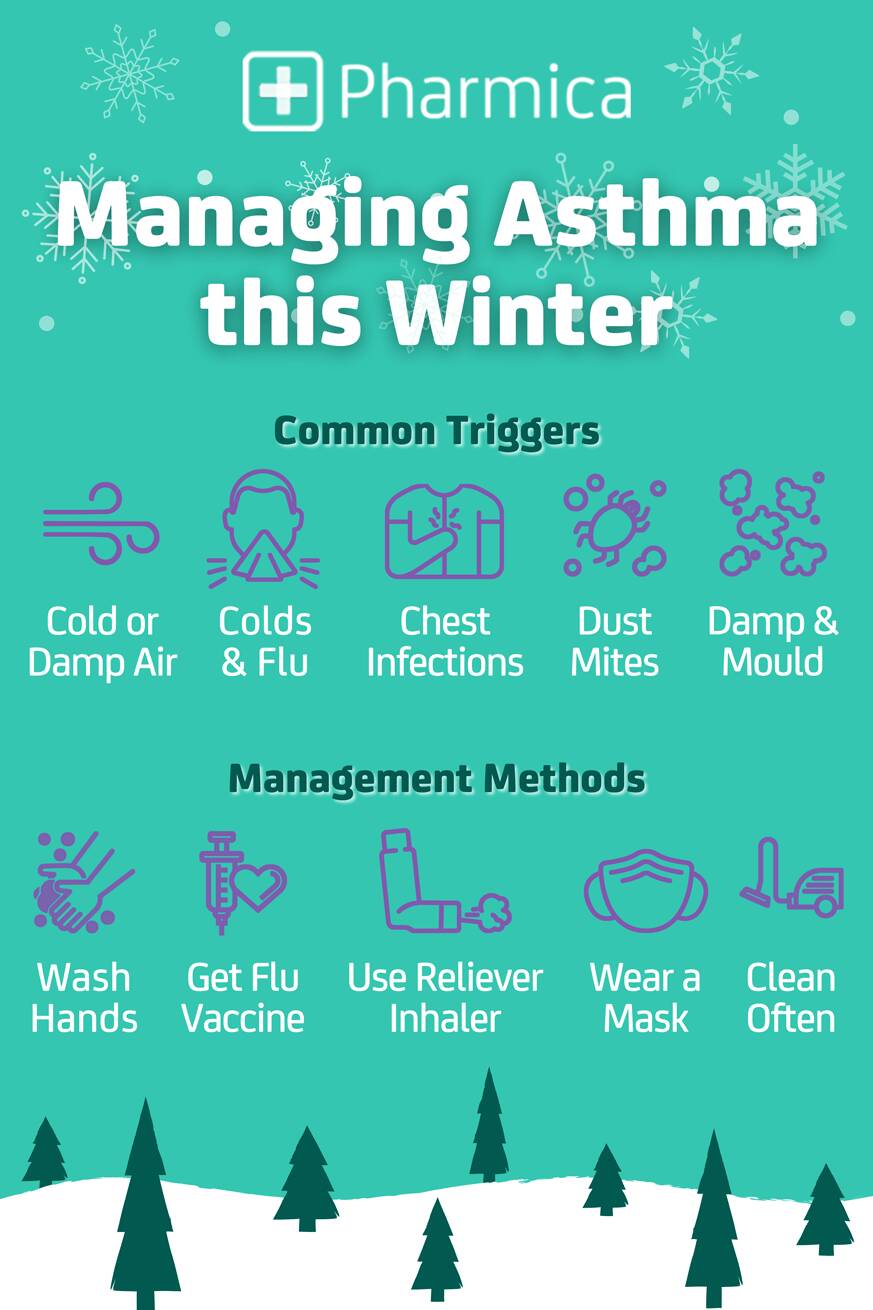
Are Asthma Symptoms Worse in Winter?
Although it differs from person-to-person depending on your predominant triggers, it’s common for asthma symptoms to be particularly pronounced in winter. Some causes include:
Colds and Flu
This is the most common winter asthma trigger, with approximately 3 in 4 people experiencing worse asthma symptoms when they have a flu or a cold.
Chest Infections
These infections are most common in the winter months, and having asthma increases your risk of getting one. Because chest infections inflame your airways, they can make your asthma symptoms worse.
Cold Air
Cold, dry air irritates the airways and may also result in increased mucus production which exacerbates asthma symptoms.
Damp and Mould
Mould is a common trigger of asthma symptoms, which may be more common in winter as things take longer to dry and we trap moisture indoors. Drying clothes inside with closed windows, and not using extractor fans in the kitchen and bathroom, are two ways in which moisture might be trapped and lead to mould and damp forming.
Dust Mites
More time spent indoors as the weather gets cold means that dust may trigger your asthma symptoms, so it’s vital to keep the indoors well vacuumed and bedding and clothes washed regularly to get rid of dust mites.
How Can I Manage My Asthma Symptoms this Winter?
Be sure to work closely with your GP to develop an asthma plan to follow through winter, helping to get your asthma under control and reduce the severity and frequency of symptoms.
Even if your asthma is well-controlled, it’s recommended that you carry with you a reliever inhaler at all times so you can immediately treat your symptoms in the case of an asthma attack. Remember to take your Ventolin reliever inhaler with you especially when exercising outside, as heavy breathing of the cold air can often trigger symptoms. You should also use a preventer inhaler as prescribed by your GP, even if you don’t currently have symptoms.
Our other top tips include:
- Make sure you’re drinking plenty of fluids to keep any mucus in your airways thinner
- Get your flu jab as soon as possible (once each year)
- Wear a mask or scarf around your mouth when walking outside to warm up the air you breathe in and filter trigger particles
- Wash your hands regularly to avoid transferring dust or other trigger particles to your face, and also to reduce the chances of catching a cold or flu virus
- Clean your home and your clothes frequently
- Try to avoid contact with anyone who is ill with a cold or flu